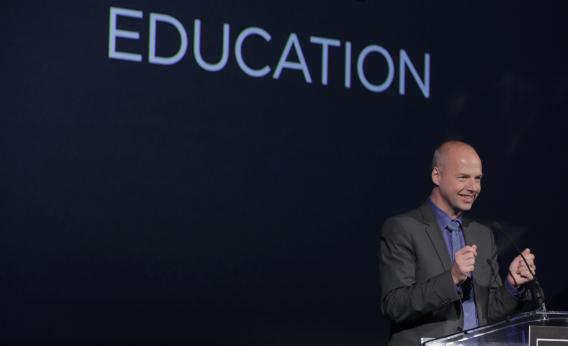In January, San Jose State University made a big announcement: It had reached a deal with the startup Udacity to offer college classes for credit online, for a modest fee, not only to its own students but to anyone who wanted to take them. The move was touted as a major step in online learning’s Clay Christensen-approved march toward the ultimate disruption of higher education.
It seems, however, that there are a few more kinks to work out before we all toss out the books and the buildings for good. Inside Higher Ed reported on Thursday that San Jose State is suspending the Udacity partnership just six months after it launched. The problem: More than half the students in the first batch of online courses failed their final exams.
Udacity founder Sebastian Thrun, a machine-learning legend at Stanford and Google, told the AP that the failure rates in the five classes ranged from 56 to 76 percent. Nor was the course material exactly rocket science—the five classes were in elementary statistics, college algebra, entry-level math, introduction to programming, and introduction to psychology.
Thrun did note that 83 percent of students had completed the classes, a far higher rate than is typical for the free, open courses that have come to be known as MOOCs. Why so many failed is not fully clear, though the AP cites “officials” saying that a lot of the students who signed up had little college experience or were working full-time while taking the classes.
On the bright side, Thrun said Udacity had gained some valuable data from the experience. “We are experimenting and learning,” he said. “That to me is a positive.”
Sure, gaining experience is good. And there’s nothing wrong with experimentation. It’s a sure bet that somehow, at some point, online instruction will indeed reshape higher education, if perhaps in more modest ways than its most ardent backers assume. Missteps are part of the process.
Still, this is not the first heavily hyped online-learning venture to make headlines for going dramatically awry. The question is, what university will be eager to offer up its students as the next lab rats in what amounts to a massive pedagogical R&D program by for-profit Silicon Valley startups?
